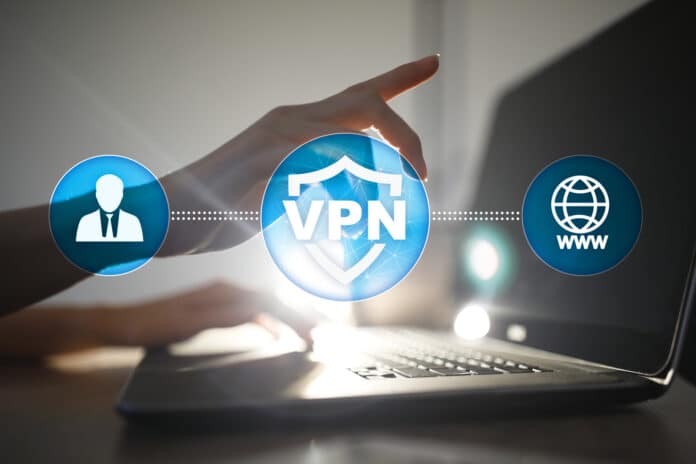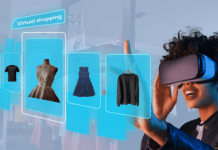
It’s clear that our internet security is being compromised. Whether that’s from bad actors in society, government, or corporations, we have to strive to maintain our online privacy.
There are many reasons why you need privacy on the internet.
You want to protect your browsing history from hackers. You want your financial information protected. You might also want to transact online business with the assurance of privacy.
Among the best solutions available, you’ve likely heard of proxies and VPNs. But which is the better solution for your needs?
Here’s what to know about proxy vs VPN:
1. What’s a Proxy?
When you visit a website, your device (computer, tablet, smartphone, etc.) connects with the host server. The proxy is the agent that helps with this connection.
Each device has an IP address associated with it. The proxy protects your IP address from the host server.
There are 3 different types of proxies:
- An HTTP Proxy lets your device connect with websites. At times they can help with connecting to geo-targeted and restricted websites
- A SOCKS Proxy helps you connect to applications that require internet access. An example could be online streaming or online gaming
- A Transparent Proxy gets used to restrict access to certain online content. This gets used by parents, corporations, and any entity that provides public Wi-Fi services
A proxy is an important feature to help you connect safely to online services. However, they don’t always do the best job of protecting your privacy. You need to take an additional step.
That’s where a VPN comes in:
2. What’s a VPN?
A Virtual Private Network (VPN) is a service that helps your device connect to an internet service. This can include websites and online applications with the protection of masking your IP address.
When you use the internet, your Internet Service Provider (ISP) collects your data. The major concern today is that your data can get sold to third-parties.
These third-parties can use your data against you. Or they can snoop into more personal details about your life that you’d rather hide.
It can also help you access geo-targeted content. For example, let’s assume you’re in the USA and want to watch content licensed in the UK.
You can connect to a VPN in the UK. Once you do this, you’ll have access to UK-based content.
There are many great VPN services you can find such as NordVPN. With a proxy, you’ve only got three options. With a VPN, you can shop around for which VPN offers you the best services.
VPN is being used widely for several purposes. For example, many people choose to use a VPN with DraftKings to play the sport without any restrictions.
3. What Makes a Great VPN?
So what are the features you need for a VPN service? How do you assess which VPN to buy?
There are a few VPN services that are free. Some web browsers will also have VPN services built-in.
But if you want a great VPN service you have to go for a paid version. Never depend on the strength of a free VPN service.
Nothing guarantees your security and privacy online. However, a VPN is the best option so far for this protection.
As such you want to look for a VPN that has had few or no reported breaches.
Look at the VPN’s track record. How many times has their VPN failed in protecting privacy? Make sure you choose the one that has as few failure reports as possible.
You also want to look at the geo-targeting feature. How many VPN servers does the VPN service have?
There are some VPN services that only have servers within 1 country. While this might be sufficient for you, this usually indicates poor quality.
There are VPN services that have servers in several locations within several countries across the globe.
These are the VPN services to choose from. You also shouldn’t opt for the cheapest option. This is almost as bad as opting for a free VPN service.
The best VPN services will be a few hundred dollars for a yearly subscription. However, you’ll have the peace of mind that you can enjoy a secure browsing experience.
4. Proxy vs VPN: Which Do You Need?
Let’s return to proxies. Do you need them in addition to a VPN service? Or is one better than the other? What is the main difference between proxy and VPN? Do you need to use a VPN and proxy together?
The simple answer is that you only need to depend on a VPN service. This does the work of a proxy plus has additional security benefits.
You’ll get to connect to websites and other internet services. You won’t have to worry about ISP data collection. The stress about surveillance from governments and Big Tech is also reduced.
A VPN might take a bit longer to load a website or online application. But the trade-off is your security for a few more seconds of waiting time.
However, there are situations where you’ll have to depend on a proxy. If you don’t have access to your computer you likely won’t get to download a VPN service to the computer you’re using.
For example, you might have to use the computer at your hotel or a library. You want to make sure that you’re protected as much as possible when using public computers and public internet connections.
Make sure you use HTTP or HTTPS to access websites. When checking confidential websites such as your email, you want to make sure your data gets protected.
Of course, make sure you take further precautions such as clearing your history, etc.
Protect Yourself
Now that you know everything about Proxy vs VPN, you can find a great VPN service to protect your online experience. You should also understand how a proxy works when you can’t access a private computer.
Try out the VPN that has many servers and a great track record. This is the first step to protect your privacy online.
Make sure you do further research on other services that help you protect yourself online.
Please share this guide with anyone else concerned with their online privacy. You can find more content on tech and the internet on our website.




